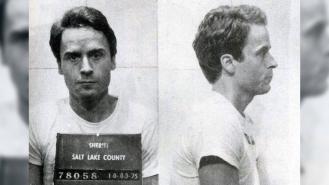The Trial
Fittingly for the media savvy Rader, he makes his first court appearance via a video link from his cell on 1st March 2005. He pleads not guilty to the ten murder charges. Rader says that he will represent himself in these actions, much like Ted Bundy had done.
Two of the BTK killer’s victims filed civil lawsuits seeking damages from Rader. Their motive isn’t monetary but is intended to ensure that he can never profit from any media interviews. In June, Rader changes his plea to guilty. Superficially, he appeared unusual amongst serial killer psychopaths in that in pleading guilty and expressing remorse, he showed a degree of empathy and sympathy, which is almost, by definition, missing in such mass murderers.
“I have a lot of remorse. I’m very sorry for them. It is something I wouldn’t want to happen to my family.”
Of course, whatever he says he feels, his cold, clinical, calculating killing of "projects" shows his true character. It’s probable that his apparent remorse is no less of an act than when he dressed as a repair man or told his victim’s stories. All lies intended to achieve the result he wants. And in reality, Rader doesn’t accept responsibility for his crimes. He blames his split personality, a monster in his mind, or a demonic presence forcing his hand.
On 26th July 2005, Rader’s wife of more than thirty years ends the marriage and the judge, understandably, waves the usual waiting period to grant an immediate divorce. She can take some small consolation from the fact that if Rader had not been married, he would have been free to stalk and kill much, much, more.
His sentencing in August was the first time for relatives of his victims to confront him, but it also revealed more gruesome details. Rader threw his last victim’s body under a bridge only to return later. Despite decomposition occurring, Rader placed a feminine mask over her dead face and photographed the body. He later wore the mask himself with a blonde wig and then took self portraits of himself tied to a chair.
On 12th August 2005, he does an interview with NBC in which he says, "I had what they called torture chambers. And to relieve your sexual fantasies you have to go to the kill...I don’t think it was actually the person that I was after, I think it was the dream. I know that’s not really nice to say about a person, but they were basically an object. They were just an object. That’s all they were.”
Half way through the month he gives testimony about his first murders and an insight into his belief system. He says he believes the Otero family will serve him in the afterlife as slaves. He believes the same will happen to Shirley Relford. He also adds that he would have killed her daughter and the other children if the phone hadn’t rung and hastened his exit.
Wichita Police Lieutenant Ken Landwehr said that the only thing that made Rader different from other serial killers was the long periods of time between some of the killings. Apart from that, there was nothing special about him. When family members of his victims call him a coward, Rader appears upset.
When Rader delivered a 20 minute statement, it was later likened to an Oscar acceptance speech. He tearfully admitted his faults, thanked his supporters, and sickeningly compared his position with that of his victims. Thankfully, many of the relatives of those victims had only come to have their say to the judge and left before having to endure any more of Rader.The judge sentenced Rader to endure 175 years.He is currently in El Dorado Correctional Facility.


